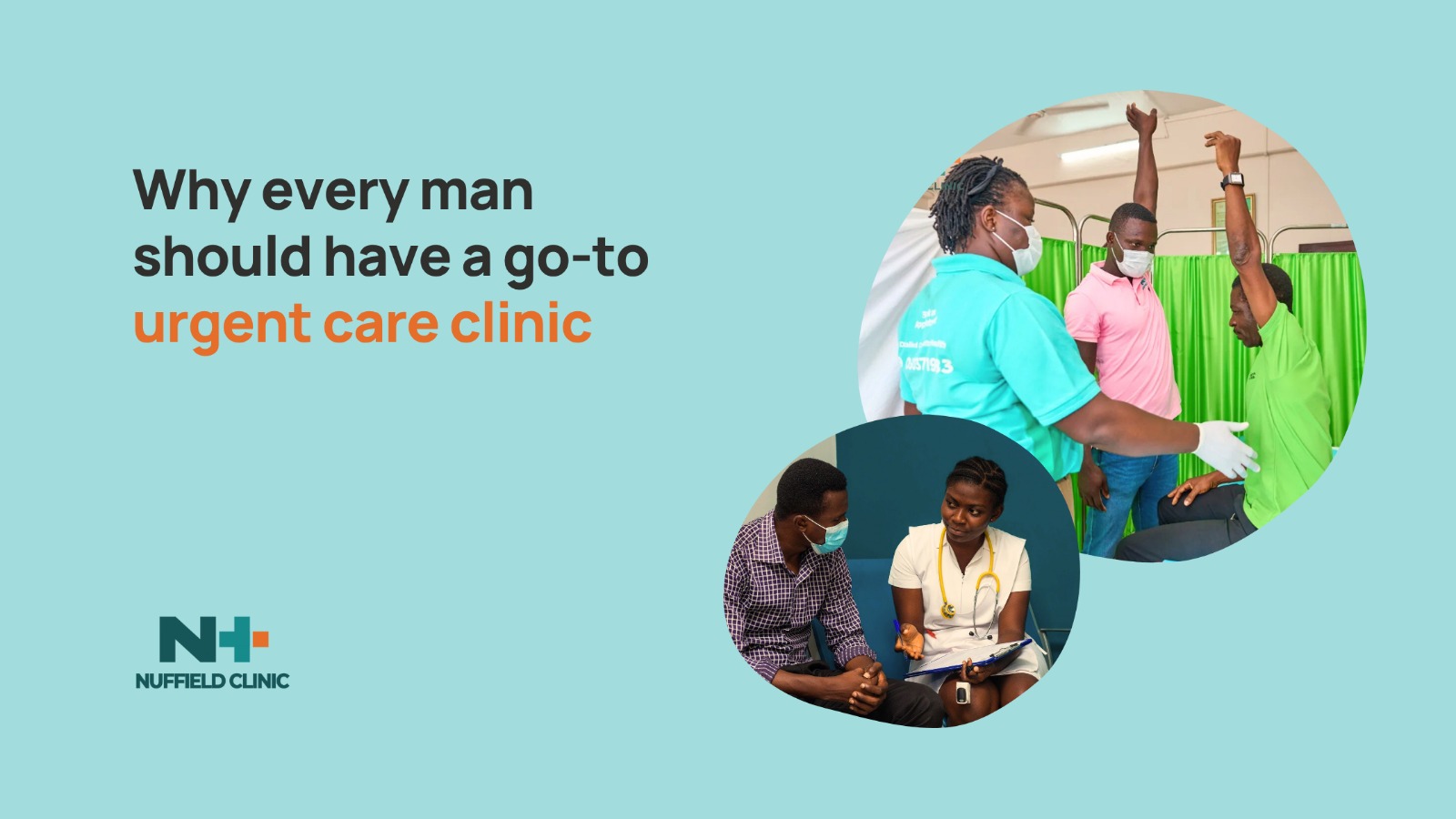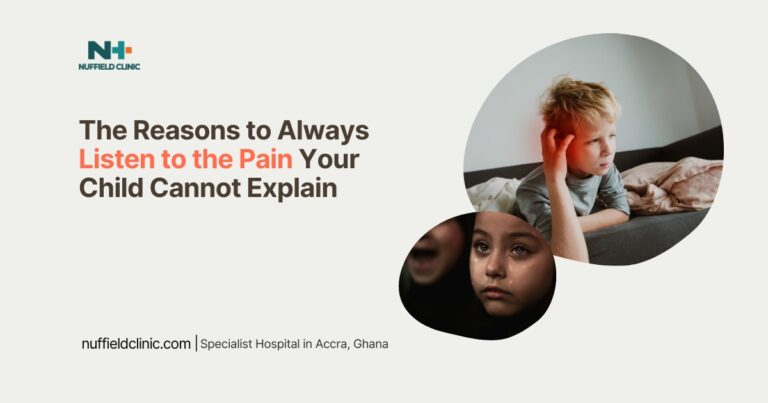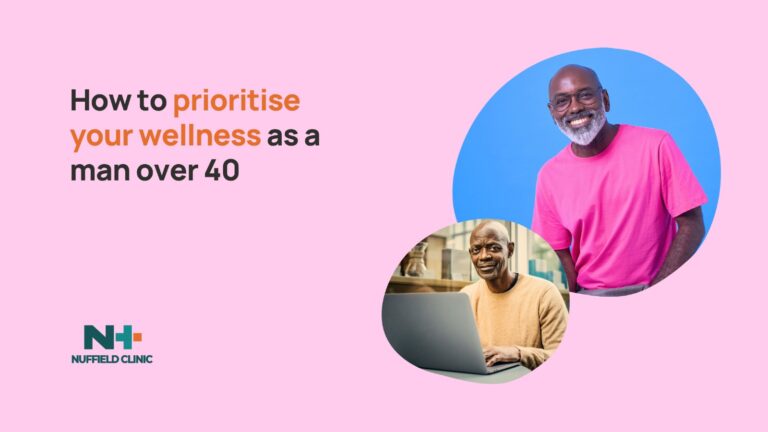Why every man should have a go-to urgent care clinic

Why should you have a go-to urgent care clinic? Healthcare decisions often begin with convenience. For men managing busy schedules, urgent care clinics offer a practical, cost-effective way to access timely medical support.
These centres fill the gap between primary care providers and emergency departments, providing accessible services for both everyday health concerns and unexpected medical needs.
See also:
- A Man’s Guide to Understanding Blood Test Results
- Why Regular Checkups Are Critical for Men After 40
- Top 10 Symptoms Men Should Never Ignore, According to a General Practitioner
Urgent care clinics offer flexibility, affordability, and breadth of services
Modern urgent care centres have transformed how non-emergency health issues are managed. Most facilities operate with extended hours and accept walk-ins. Clinics stay open in the evenings and on weekends, offering flexibility that traditional physician offices may not provide. This arrangement is especially useful for men who experience sudden illness or minor injuries outside regular working hours.
Cost also sets urgent care apart. A visit is typically far less expensive than a trip to the emergency room. The difference in out-of-pocket costs can be significant, especially for individuals without comprehensive insurance. Clinics streamline the diagnostic process and avoid unnecessary procedures, which helps reduce financial strain.
The range of services extends beyond treating colds or minor injuries. Most urgent care centres are equipped to manage sprains, minor fractures, asthma flare-ups, urinary tract infections, earaches, skin infections, and more.
Many also provide diagnostic testing on-site, including X-rays and lab work. Certain clinics offer immediate prescription services, further simplifying the care process. This breadth of services positions urgent care clinics as dependable hubs for timely intervention.
Efficient care delivery benefits both patients and the healthcare system
Urgent care facilities are designed for efficient patient flow. Average wait times are significantly shorter compared to hospital emergency rooms. Clinics treat patients quickly, often within an hour. This approach enhances the patient experience without sacrificing quality of care. Staff members are trained to evaluate symptoms and initiate treatment effectively.
Beyond individual service, urgent care centres support system-wide efficiency. Patients with non-critical conditions who visit urgent care clinics instead of hospital ERs reduce pressure on emergency departments. This separation ensures that high-acuity cases receive the attention they require, while lower-risk conditions are managed in more appropriate settings. The outcome is a more balanced and responsive healthcare delivery system.
Men’s health needs benefit significantly from urgent care access
Men often avoid routine medical visits. Many delay seeking care until symptoms become severe. According to multiple health sources, a majority of men only see a doctor when they are sick or injured. This pattern limits opportunities for preventive care and contributes to poorer health outcomes. Life expectancy for men continues to lag behind women in part due to late detection and underutilization of health services.
Urgent care clinics offer a more approachable entry point for men to address health concerns. Many clinics now provide wellness exams, vaccinations, and health screenings without requiring long waits or scheduled appointments. These include checks for blood pressure, blood sugar, cholesterol, and other markers related to heart health and diabetes.
Sexual health services are also readily available. Regular testing for sexually transmitted infections is essential, particularly because many infections present with no symptoms. Urgent care clinics provide discreet and reliable testing options.
Some facilities also screen for low testosterone levels, which can impact energy, libido, and muscle mass. With many conditions being manageable when caught early, access to screening services is essential.
Common urgent care scenarios for men
Men visit urgent care clinics for a wide range of reasons, many of which do not require emergency services but still benefit from professional attention.
Cuts and wounds are among the most common. Clinics are well-equipped to clean and close wounds, whether with stitches or adhesives. They also assess the need for tetanus shots when necessary.
Sprains, strains, and fractures occur often due to physical activity or accidents. Many clinics offer X-rays and splinting, providing rapid diagnosis and stabilisation until follow-up care is arranged.
Respiratory infections such as bronchitis, strep throat, and sinus infections are easily treated at urgent care facilities. These illnesses often arise suddenly and require evaluation to determine whether antibiotics or other treatments are needed.
Foreign object removal is another typical service. Splinters, debris, and even particles lodged in the eye or skin can be safely extracted in a clinic setting.
Urgent care and long-term wellness
While urgent care serves immediate needs, it can also help initiate longer-term health planning. Clinics may refer patients to primary care providers when necessary. This coordination supports continuity of care for chronic conditions like diabetes or hypertension. Establishing a relationship with a primary care physician remains important, especially for conditions requiring ongoing management.
However, having a trusted urgent care clinic means access to care when it matters most, without delay or hesitation. It encourages men to be proactive, to address symptoms early, and to use healthcare services as part of a sustainable lifestyle strategy.
Urgent care centres provide an essential service in today’s healthcare landscape. They combine convenience, affordability, and professional care in a setting that works well for men who might otherwise postpone treatment. Choosing a go-to clinic helps make health decisions easier, reduces barriers to care, and supports both immediate and long-term well-being.







